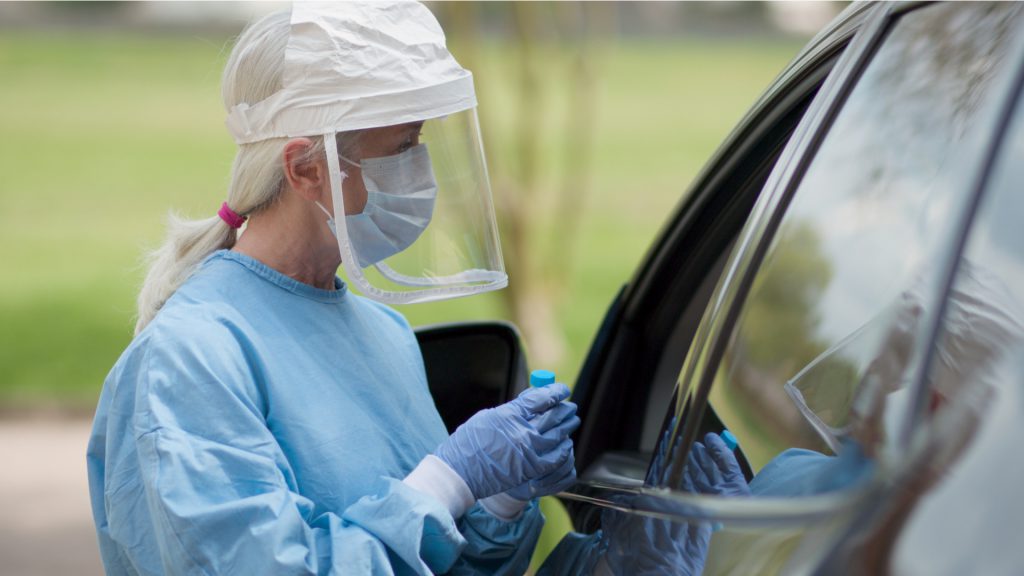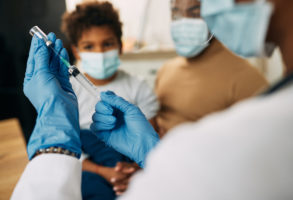
Published April 29, 2020
Syndicated Column
One of the less helpful aspects of our current quandary is the shrill argument between two closed-minded camps. One condemns those who wish to open up the economy as science-defying ghouls who care nothing for human life. The other depicts the stay-at-homes as economic saboteurs willing to destroy the national economy in the name of unobtainable safety.
Neither reckons with the indispensable bridge — the testing problem. Whatever mayors, governors, or presidents might say, we cannot restart the economy as long as people are too frightened to resume working, shopping, and socializing. An NPR/Marist poll found that 65 percent of Americans believe that it would be a “bad idea” to have people return to work until further testing is available, and 80 percent say the same about eating in restaurants. Even larger majorities oppose opening schools or sporting events.
On the other hand, it’s simply untenable to keep huge sectors of the economy in what Will Wilkinson of the Niskanen Center calls “soft house arrest” indefinitely, or to open up only to be forced to shut down again in the face of new illness spikes. We are stuck in limbo. We’ve succeeded in flattening the curve but haven’t conceived a way to avoid thousands more deaths without causing economic catastrophe.
Fortunately, the Safra Center for Ethics at Harvard has gathered experts from across the political spectrum and prepared a very compelling roadmap for escaping from this trap. It requires shifting focus from quarantining the entire population (with its attendant economic pain) to testing on a massive scale, contact tracing, and supported isolation (TTSI). With the proper level of TTSI, we could begin safely to reopen the economy sector by sector, starting with the most essential.
We are currently testing about 150,000 people a day. That number needs to ramp up fast to two million a day and then quickly to five million per day, reaching 20 million by August. To accomplish this, Safra calls for a Pandemic Testing Board modeled on World War II’s War Production Board to coordinate the innovation, supply chains, and regulatory changes necessary to facilitate this. Testing is always a critical part of disease control, but never more than in this case when so many carriers are asymptomatic.
Once infected people are identified, they need to be supported in isolation — meaning that they should be able to expect sick pay, the guarantee of a job when they return, and perhaps even temporary housing (hotels may be useful for those who need it). Their contacts must also be informed and urged to self-isolate for the two-week incubation period. Johns Hopkins University has estimated that we will need to hire and train at least 100,000 new personnel. This will involve use of apps and other technologies that pose privacy concerns, but experience with other epidemics like HIV has shown that it can be done sensitively. After a negative test, people can safely return to work.
Phase One would focus on essential workers, the 40 percent of the workforce who are not able to self-quarantine and alarming numbers of whom are falling ill. Doctors and nurses are at high risk. Seventeen percent of the New York City police force is infected, and the outbreak at meat processing plants has prompted the chairman of Tyson Foods to warn that the “food supply chain is breaking.”
Phase Two would permit reopening of many businesses, while maintaining social distancing for vulnerable populations. Phase Three would see about 80 percent of the economy back on track, and Phase Four would see a new normal in which the economy returned to pre-pandemic levels but with testing, careful monitoring, and improved decontamination to suppress further outbreaks.
If a vaccine comes along, so much the better. But this roadmap would permit us to cope with a world that contains COVID-19 – or some future pathogen — without letting it wreak devastation on the economy or our health.
How much would it cost? Between $50 and $300 billion over two years. But compared to what? The current lockdown regime is the costliest emergency of our lifetimes. The price we are paying now, including eye-popping outlays of up to $350 billion a month from the federal government (spiking our national debt to levels unseen since World War II), lost education for children, bankruptcies, diminishing mental health, overwhelmed soup kitchens, spikes in domestic violence, and more, is incalculable. This roadmap — or something like it — offers a lifeline.
Mona Charen is a Senior Fellow at the Ethics and Public Policy Center. Her new book is Sex Matters: How Modern Feminism Lost Touch with Science, Love, and Common Sense.
COPYRIGHT 2020 CREATORS.COM








